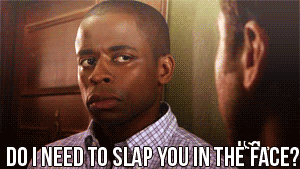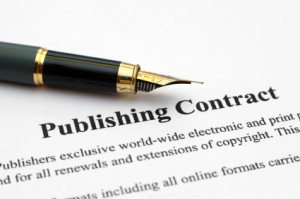What to do with the publishers beating down your door
It looks like Christmas came early for me.
After a whirlwind writing spree in October, I began taking my new novel, Losing Logan, to agents. I got 7 rejections, all saying the same thing. No one is buying YA Paranormal novels anymore. They “love the writing”, but they won’t be able to sell it to a publisher (and then they ask, “but do you have any NA or Contemporary we can contract?”). To say I was disheartened would be a huge understatement. I LOVE YA paranormal. It’s what I enjoy and it’s what I write (mostly). And I LOVED how the story came out. My beta readers loved it. So why was it such a miss with the Agents? It’s a common question–one that I wish I had an answer to.
So, I started doing what I always do and sent it to a handful of my favorite mid-list publishers in November. Here I am, a month later, and I woke up to TWO offers of publication in my inbox today. I’m incredibly grateful but it also makes me think, what is the matter with agents?

Short answer, nothing. Agents get thousands of submissions a month and they can only rep things they know without a doubt they can sell. And YA paranormal is a flooded market. They are trying to buy things that are trending now, things that will (hopefully) be an easy sale for them. And that’s their job. I get that, I really do. But it’s also really frustrating.
The nice thing about being able to go directly to the publishing houses is that you have a bit more control over your own future. Publishers are, in fact, still buying the genre because they know that there will ALWAYS be a market for it. And because they don’t have the overhead of major houses, they can take more projects. Most agents won’t take something to a mid-list publisher, just because advances and pay-outs tend to be smaller. But if I don’t have to give 10% of what I make to an agent, then smaller is ok with me. Logan is my 10th novel (all are in various stages of publishing or being under contract to publish) and I’ve done it all without an agent. Is it harder? Yes. Impossible? No. Do I still want an agent? Heck yes. Someday I want to get a book in front of those big 6 publishers, if only to say I did, and sadly you can’t do that without an agent.
Now, say you take the path I took and wake up one day to find you have multiple publishing offers. First, you do a happy dance (because it never doesn’t feel amazing to have an offer). What do you do next? It’s a wonderful problem to have, but a problem none the less.
Firstly, be sure to thank them for their offer and ask any questions you may have about how they operate. Also, ask to see the contract. Let them know if you have other offers on the table and set a fair and reasonable time that you will get back to them with your decision. (Be sure that any other publishers who have your full manuscript are also notified that you have an offer and give them the opportunity to make a competing offer. But give them a deadline to get back to you.)
1) You want to look at the sales of their other books. If they have dozens of titles that are selling well, it’s a good sign your book will sell well too. The opposite is also true.
2) Look at the quality of their other books (covers are a BIG deal) and talk to one or two authors who work with them. You want to make sure you aren’t getting into a contract with someone who has a bad track record with their authors.
3) Look them up online, and not just their website. Do a general search and see what people are saying about them.
4) Read the contract details carefully. One place may offer higher advances but lower royalties. One may require you surrender all rights, another may let you keep audio rights. Decide what’s important to you and negotiate for the best terms you can get. Don’t be afraid to have a lawyer look over the contract.
5) Make sure they can work in your genre. I signed a book once with a wonderful publisher whose books were selling extremely well. But 99% of their books were adult romance and they had no idea how to market my YA mystery. Be sure that a publisher can work in and has good contacts in your genre.
Remember, it’s ok to ask questions and it’s OK to negotiate your contract offer. A good publisher will understand and appreciate you doing your due diligence.
Good luck and happy writing!





